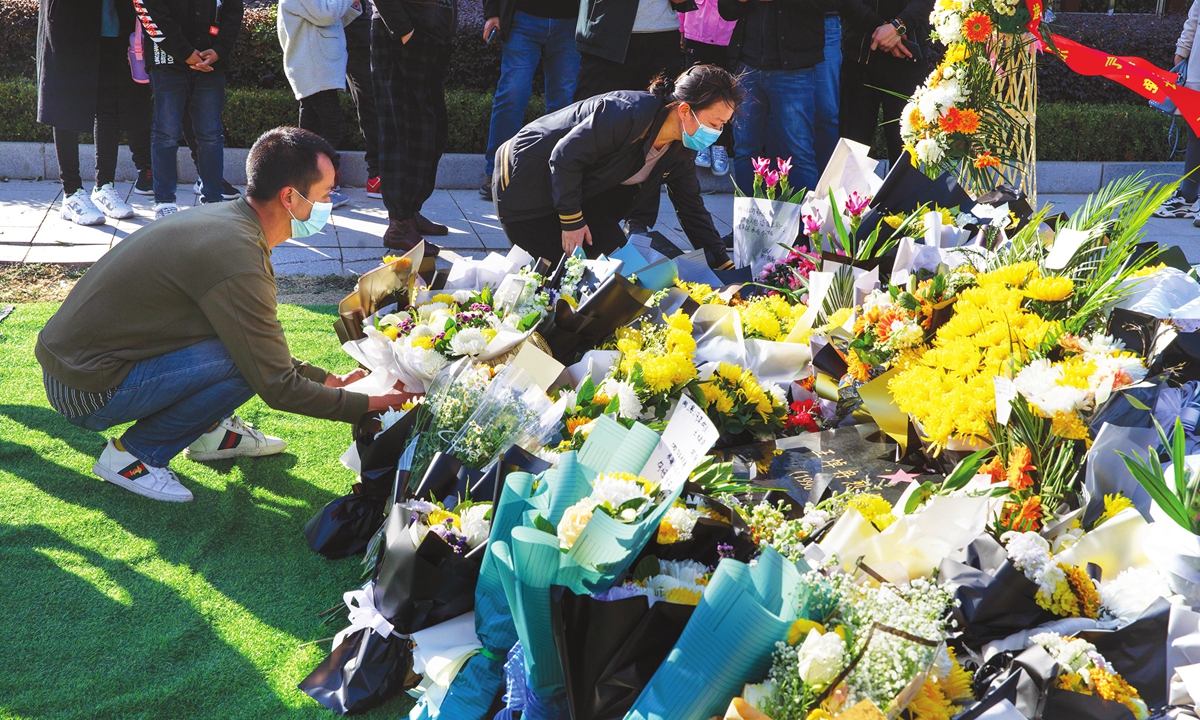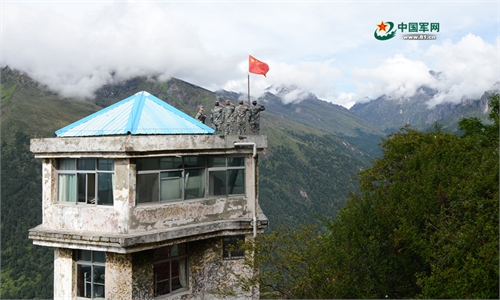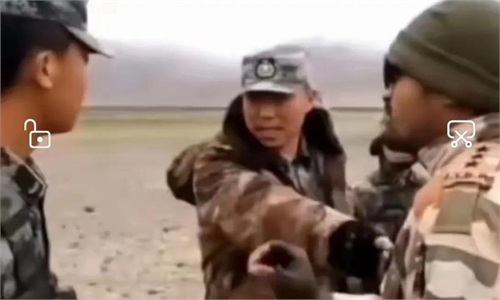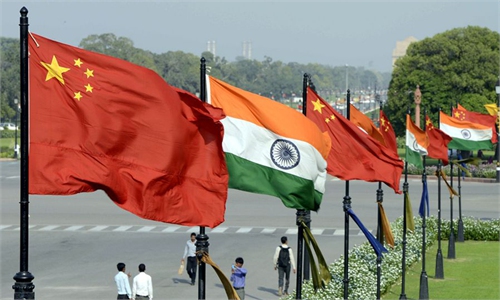
Employees of the martyrs’ cemetery in Luohe, Central China’s Henan Province, on Sunday organize bouquets that local residents brought in honor of Wang Zhuoran, 24, who died in the Galwan Valley skirmish with India in June 2020. Photo: VCG
In three days, seven Chinese netizens have been detained by police for defaming martyrs who sacrificed their lives to defend China's territory in the Galwan Valley conflict with India in June 2020, which underlines the country's commitment to prevent internet from becoming a lawless place.
The netizens came from Beijing, Chongqing, South China's Guangdong, North China's Hebei, Southwest China's Guizhou, Sichuan and East China's Jiangsu provinces, with ages ranging from 19 to 40. The youngest one, from Chongqing, has been living abroad since July 2019, local police said.
Police said they have confessed their crimes and one of them, in Sichuan, surrendered himself due to pressure. The move stresses China's efforts to protect heroes and martyrs' reputation and crackdown on any humiliation or insult on the internet as the internet is not a lawless place.
Details of the Chinese casualties involved in the border clash with the Indian military in the Galwan Valley Line of Actual Control were unveiled for the first time on Friday, prompting many to flood social media platforms to mourn the late heroes and their sacrifice made in fighting for the country.
In light of cases in which a number of people in China have slandered or derogated heroes and martyrs on the Internet, magazines and other media in the name of so-called "academic freedom," "restoring history" or "probing into details," China passed a law in 2018 that stipulates that it is illegal to defame the country's heroes and martyrs with offenders to be held criminally responsible. Previously, several popular Chinese bloggers have had their accounts suspended for insulting heroes.



